Mark Anthony Neal's Blog, page 250
February 4, 2021
Baseball's Leading Lady' Effa Manley
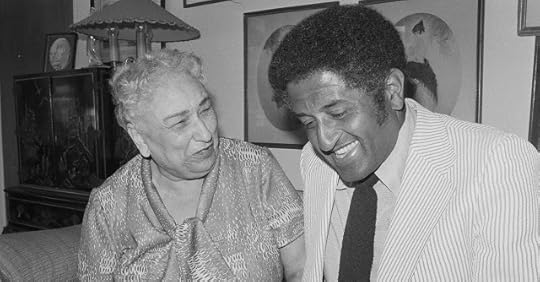
'Author Andrea Williams joins All Of It to discuss her young adult book, Baseball's Leading Lady: Effa Manley and the Rise and Fall of the Negro Leagues, about the first and only woman to be inducted into the National Baseball Hall of Fame. Manley was the owner and co-manager of the Newark Eagles, a team she cultivated into a powerhouse.'
Who's 'Black Enough' For Reparations?
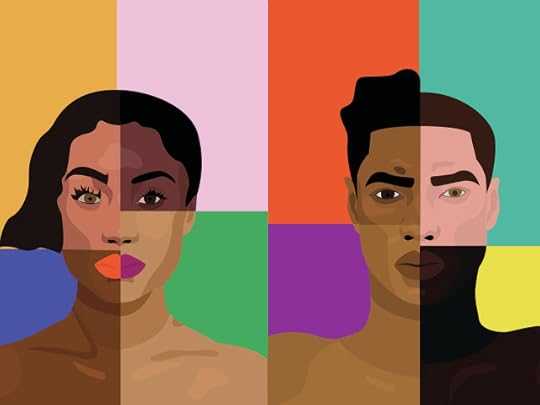
On this episode of NPR's Code Switch, the vexing question of who deserves Reparations based on racial discrimination, and who decides the criteria. They are joined by Sandy Darity, Christina Greer and Darrick Hamilton.
February 2, 2021
Def Jam Presents: Through The Lens – Janette Beckman (Episode 1)
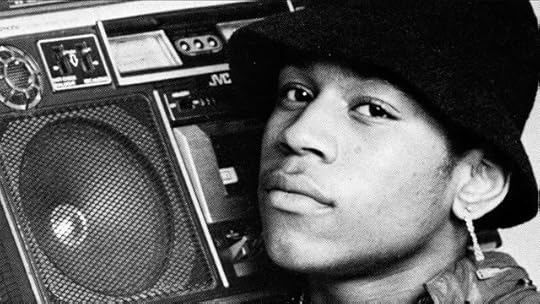
'Episode One of Through The Lens, focusing on British-born photographer Janette Beckman, who lives and works in New York and began her career at the dawn of punk rock, working for such music magazines as The Face and Melody Maker. Beckman was one of the first photographers to shoot LL Cool J, T La Rock and Slick Rick.'-- Def Jam
Saint Coltrane: The Church Built On 'A Love Supreme'

'In this 20-minute documentary short, Jazz Night in America pays a visit to the Coltrane Church, thoughtfully tracing its winding history — including a tumultuous period when Alice Coltrane, John's widow, bestowed and then revoked her support. We'll delve into the spiritual mysteries of 'A Love Supreme,' from "Acknowledgment" to "Psalm," and consider what it means to be of service — to a calling, to a community, and to the music that sparked it all.'
NCMOH Jazz Series: Nnenna Freelon: Concert with Conversation
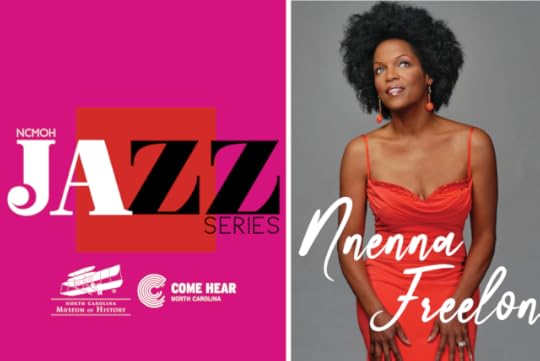
'What links exist between Billie Holiday and Frank Sinatra? Who are some songwriters of the Great American Songbook? Who can we look to today? Join Grammy-nominated vocalist and North Carolina–based artist Nina Freelon and her accompanist for an intimate, informal program that explores some popular music of the 1940s—and some from the current day. The music, and the stories, will take us on a surprising journey. This evening of our virtual jazz concert mini-series is presented by the North Carolina Museum of History.'
NCMOH Jazz Series: Nnenna Freelon: Concert with Conversation from Beyond The Exhibits/NCMOH on Vimeo.
The Quarantine Tapes 153: Joy Harjo
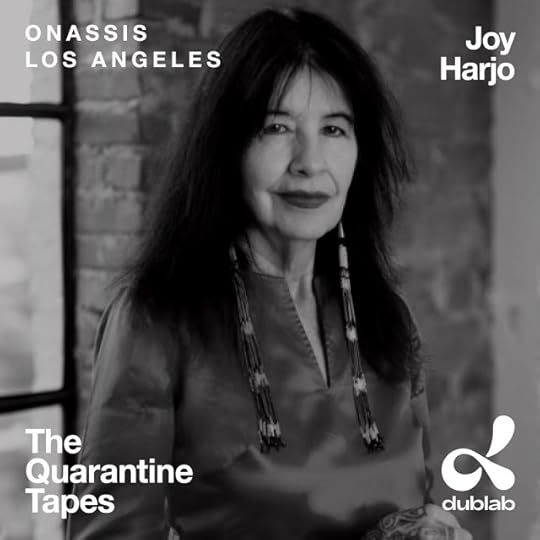
“We’re all called in our human being-ness to embody what a warrior embodies, and that’s someone who’s awake and is listening and is moving through the world listening.”
'Host Paul Holdengräber is joined by poet Joy Harjo on episode 153 of The Quarantine Tapes. Joy and Paul discuss the relationship between different art forms as Joy talks about her poetry, music, and painting practices.'
February 1, 2021
Black History Month 2021: “There’s a Lot Left to Be Done” by Ben Jealous

Black History Month 2021: “There’s a Lot Left to Be Done”
by Ben Jealous | @BenJealous | special to NewBlackMan (in Exile)
February is Black History Month – and Black people just made a whole lot of history.
Joe Biden is our president and Donald Trump is not because Black organizers and voters decided that they would not be denied their right as American citizens to be heard at the ballot box.
Kamala Harris is our history-making vice president, a Black and Southeast Asian woman and the daughter of immigrants, thanks to the millions of Black people who encouraged family, friends, and neighbors to vote.
Rev. Raphael Warnock and Jon Ossoff are senators because Black people and their allies in Georgia turned out in November, and again in January, to signal a new day in the heart of the Old South.
All this makes me grateful that Black History Month comes in February. It encourages us to think about those who made these historic moments possible.
I’m thinking about the freedom fighters and voting rights activists – and the courageous ordinary people whose names don’t show up in history books, but who showed up to fight against injustice. They often faced violence and brutality that was fueled by the racist power structure’s desire to maintain power at all costs.
Does that sound familiar? Just a few weeks ago, we saw our democracy challenged by that same kind of poison. We watched a president incite his supporters to violence by denying the legitimacy of Black people’s votes. The rage among Trump’s followers was stoked by endless repetitions of the lie that so-called real Americans had reelected him in a landslide, and that the election was stolen from them by corrupt big-city machines—read Black officials and voters—and their communist allies.
Black History Month is a good time to remember that Martin Luther King Jr. and the movement he led were also smeared as communists out to destroy America.
And you don’t have to be a historian to have noticed the Confederate flags and the lynching noose brought to the Capitol on January 6 by the mob that claimed they were taking back the election and the country.
In 2013, conservatives on the U.S. Supreme Court gutted the Voting Rights Act, which has long been considered the crown jewel of the civil rights movement.
Immediately, state legislators, especially in the old Confederate states, took advantage of the federal government’s forced retreat from justice. They passed all kinds of new restrictions on voting. People in the civil rights and voting rights movements did not give up in despair after that devastating setback. They knew that every bit of progress is met with resistance. And the greater the progress, the greater the backlash.
Right-wing politicians are already responding to Black voters’ turnout and the victories they made possible by preparing new plans to restrict voting. Some Pennsylvania Republicans who were supporters of voting by mail just a couple years ago are now trying to end it. We must defeat these efforts.
As we welcome the Biden-Harris administration and encourage them to govern boldly to advance equality, justice, and opportunity, I think back to 2009, when Barack Obama made history as our first Black president. That year, I participated in a Story Corps conversation with my mother and grandmother about their own histories of civil rights activism. My grandmother—who is still with us today at age 104—sent me off with a message that is just as true today: “There’s a lot left to be done.”
There are many ways to think about the stubborn resistance to the full inclusion of Black people in this country. Right now, I want to focus on this: The civil rights movement’s victories were especially amazing given the intensity of the opposition. Our recent election wins are even more impressive when you consider that they were won in the face of powerful political forces working to make it harder for people to vote.
Our optimism and hope are grounded in our history of overcoming.
***
Ben Jealous serves as president of People For the American Way and People For the American Way Foundation. Jealous has decades of experience as a leader, coalition builder, campaigner for social justice and seasoned nonprofit executive. In 2008, he was chosen as the youngest-ever president and CEO of the NAACP. He is a graduate of Columbia University and Oxford, where he was a Rhodes Scholar, and he has taught at Princeton and the University of Pennsylvania.
@font-face {font-family:Arial; panose-1:2 11 6 4 2 2 2 2 2 4; mso-font-charset:0; mso-generic-font-family:swiss; mso-font-pitch:variable; mso-font-signature:-536859905 -1073711037 9 0 511 0;}@font-face {font-family:"Cambria Math"; panose-1:2 4 5 3 5 4 6 3 2 4; mso-font-charset:0; mso-generic-font-family:roman; mso-font-pitch:variable; mso-font-signature:-536870145 1107305727 0 0 415 0;}@font-face {font-family:Calibri; panose-1:2 15 5 2 2 2 4 3 2 4; mso-font-charset:0; mso-generic-font-family:swiss; mso-font-pitch:variable; mso-font-signature:-536870145 1073786111 1 0 415 0;}p.MsoNormal, li.MsoNormal, div.MsoNormal {mso-style-unhide:no; mso-style-qformat:yes; mso-style-parent:""; margin:0in; margin-bottom:.0001pt; mso-pagination:widow-orphan; font-size:12.0pt; font-family:"Calibri",sans-serif; mso-ascii-font-family:Calibri; mso-ascii-theme-font:minor-latin; mso-fareast-font-family:Calibri; mso-fareast-theme-font:minor-latin; mso-hansi-font-family:Calibri; mso-hansi-theme-font:minor-latin; mso-bidi-font-family:"Times New Roman"; mso-bidi-theme-font:minor-bidi;}.MsoChpDefault {mso-style-type:export-only; mso-default-props:yes; font-family:"Calibri",sans-serif; mso-ascii-font-family:Calibri; mso-ascii-theme-font:minor-latin; mso-fareast-font-family:Calibri; mso-fareast-theme-font:minor-latin; mso-hansi-font-family:Calibri; mso-hansi-theme-font:minor-latin; mso-bidi-font-family:"Times New Roman"; mso-bidi-theme-font:minor-bidi;}div.WordSection1 {page:WordSection1;}
'Fully Erased': With Harris' Rise, There Are No Black Women In The Senate

'The lack of a Black woman in the Senate has turned a moment of triumph for many thrilled to see Kamala Harris ascend to the vice presidency into something more bittersweet.' -- Morning Edition
January 31, 2021
Bob James Offers a Backstory on His Most Sampled Records

Legendary Jazz musician Bob James talks to Tracklib about some of his most sampled songs, including "Nautilus", "Take Me to the Mardi Gras" and "Westchester Lady".
My Name is Pauli Murray: New Film on Black Queer Legal Pioneer Who Inspired RBG & Thurgood Marshal
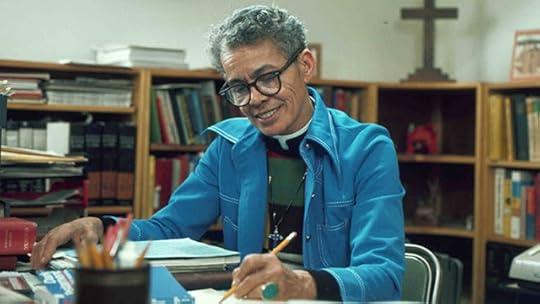
'Democracy Now! looks at the life of one of the most pivotal figures in the history of struggle for gender equality and racial justice, Pauli Murray, whose story is told in the new documentary My Name Is Pauli Murray, which premiered at the Sundance Film Festival. Murray was a trailblazing Black, nonbinary, queer, feminist poet, lawyer, legal scholar and priest who influenced the likes of Ruth Bader Ginsburg and Thurgood Marshall, and is viewed as a hero to many in the trans rights movement.'
Mark Anthony Neal's Blog
- Mark Anthony Neal's profile
- 30 followers



